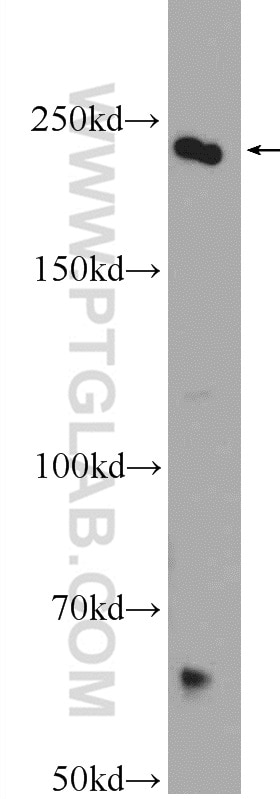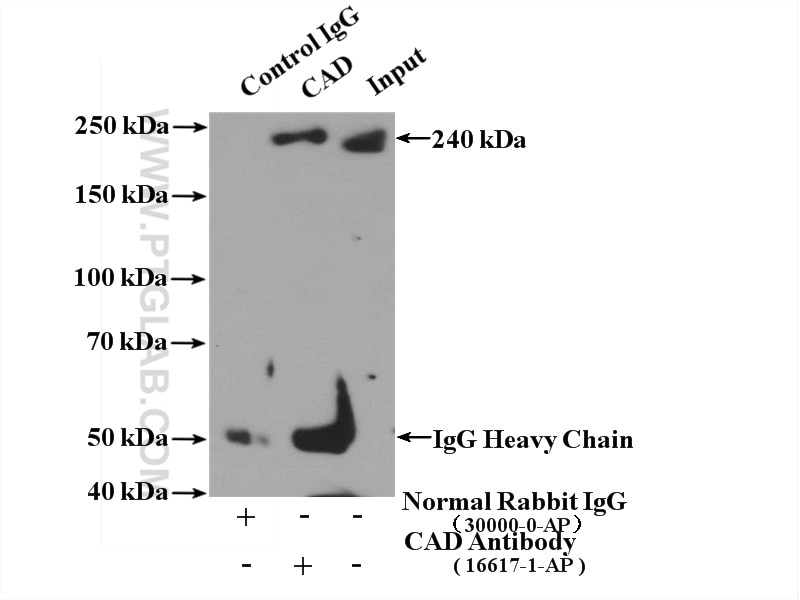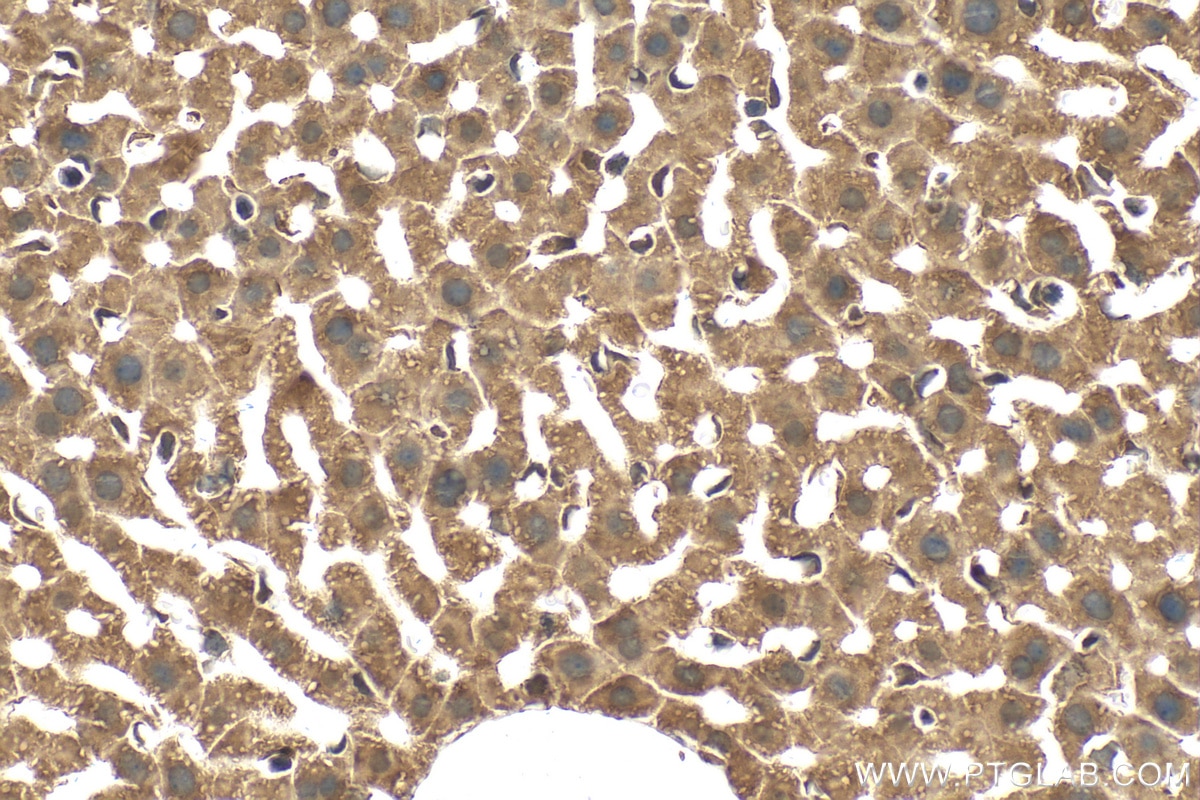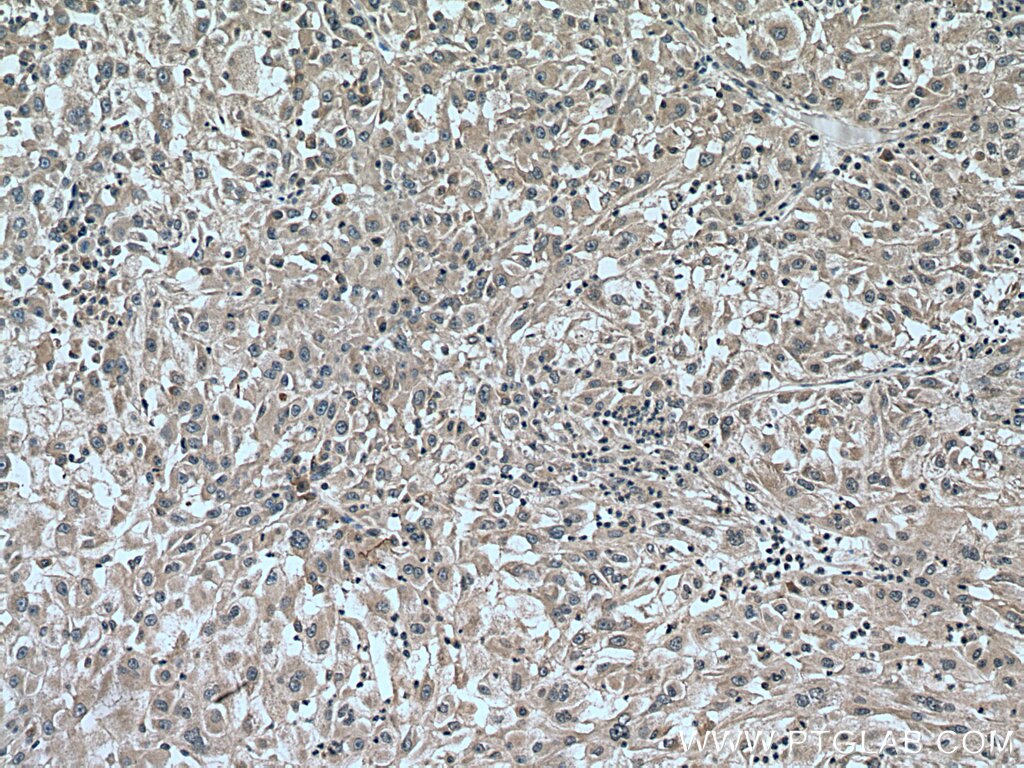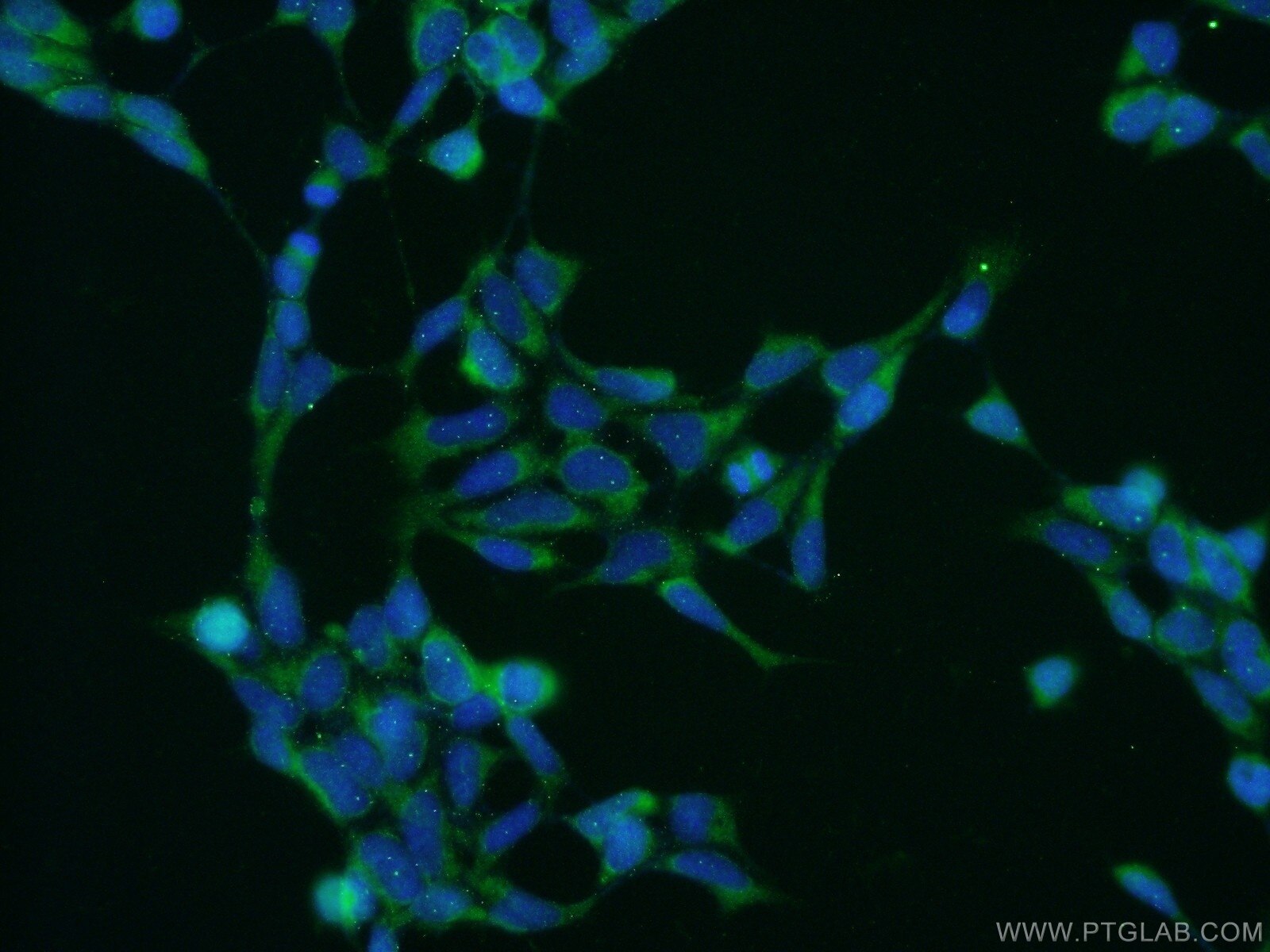- Phare
- Validé par KD/KO
Anticorps Polyclonal de lapin anti-CAD
CAD Polyclonal Antibody for WB, IP, IF, IHC, ELISA
Hôte / Isotype
Lapin / IgG
Réactivité testée
Humain et plus (1)
Applications
WB, IHC, IF/ICC, IP, ELISA
Conjugaison
Non conjugué
N° de cat : 16617-1-AP
Synonymes
Galerie de données de validation
Applications testées
| Résultats positifs en WB | cellules HEK-293 |
| Résultats positifs en IP | cellules HEK-293 |
| Résultats positifs en IHC | tissu de cancer du foie humain, tissu hépatique de souris il est suggéré de démasquer l'antigène avec un tampon de TE buffer pH 9.0; (*) À défaut, 'le démasquage de l'antigène peut être 'effectué avec un tampon citrate pH 6,0. |
| Résultats positifs en IF/ICC | cellules HEK-293 |
Dilution recommandée
| Application | Dilution |
|---|---|
| Western Blot (WB) | WB : 1:500-1:1000 |
| Immunoprécipitation (IP) | IP : 0.5-4.0 ug for 1.0-3.0 mg of total protein lysate |
| Immunohistochimie (IHC) | IHC : 1:50-1:500 |
| Immunofluorescence (IF)/ICC | IF/ICC : 1:20-1:200 |
| It is recommended that this reagent should be titrated in each testing system to obtain optimal results. | |
| Sample-dependent, check data in validation data gallery | |
Applications publiées
| KD/KO | See 2 publications below |
| WB | See 7 publications below |
| IHC | See 2 publications below |
| IF | See 1 publications below |
| IP | See 1 publications below |
Informations sur le produit
16617-1-AP cible CAD dans les applications de WB, IHC, IF/ICC, IP, ELISA et montre une réactivité avec des échantillons Humain
| Réactivité | Humain |
| Réactivité citée | Humain, souris |
| Hôte / Isotype | Lapin / IgG |
| Clonalité | Polyclonal |
| Type | Anticorps |
| Immunogène | CAD Protéine recombinante Ag9912 |
| Nom complet | carbamoyl-phosphate synthetase 2, aspartate transcarbamylase, and dihydroorotase |
| Masse moléculaire calculée | 2225 aa, 243 kDa |
| Poids moléculaire observé | 240 kDa |
| Numéro d’acquisition GenBank | BC014178 |
| Symbole du gène | CAD |
| Identification du gène (NCBI) | 790 |
| Conjugaison | Non conjugué |
| Forme | Liquide |
| Méthode de purification | Purification par affinité contre l'antigène |
| Tampon de stockage | PBS avec azoture de sodium à 0,02 % et glycérol à 50 % pH 7,3 |
| Conditions de stockage | Stocker à -20°C. Stable pendant un an après l'expédition. L'aliquotage n'est pas nécessaire pour le stockage à -20oC Les 20ul contiennent 0,1% de BSA. |
Informations générales
CAD (carbamoyl-phosphate synthetase 2, aspartate transcarbamoylase, and dihydroorotase) is a multifunctional enzyme required for the de novo synthesis of pyrimidine nucleotides (PMID:25422319). CAD initiates and controls the flflux through the pathway and is regulated by allosteric effectors and phosphorylations through different signaling cascades (PMID:12438317). Moreover, CAD is found upregulated in tumors, while mutations that compromise its function are the cause of a severe infantile epileptic disease (PMID:36677714).
Protocole
| Product Specific Protocols | |
|---|---|
| WB protocol for CAD antibody 16617-1-AP | Download protocol |
| IHC protocol for CAD antibody 16617-1-AP | Download protocol |
| IF protocol for CAD antibody 16617-1-AP | Download protocol |
| IP protocol for CAD antibody 16617-1-AP | Download protocol |
| Standard Protocols | |
|---|---|
| Click here to view our Standard Protocols |
Publications
| Species | Application | Title |
|---|---|---|
Cell Metab High dietary fructose promotes hepatocellular carcinoma progression by enhancing O-GlcNAcylation via microbiota-derived acetate | ||
Theranostics Herb-sourced emodin inhibits angiogenesis of breast cancer by targeting VEGFA transcription. | ||
PLoS Biol Nucleotide de novo synthesis increases breast cancer stemness and metastasis via cGMP-PKG-MAPK signaling pathway. | ||
Front Cell Dev Biol Identification of Key Genes Related With Aspartic Acid Metabolism and Corresponding Protein Expression in Human Colon Cancer With Postoperative Prognosis and the Underlying Molecular Pathways Prediction. | ||
Cancer Sci Apelin-mediated deamidation of HMGA1 promotes tumorigenesis by enhancing SREBP1 activity and lipid synthesis |
